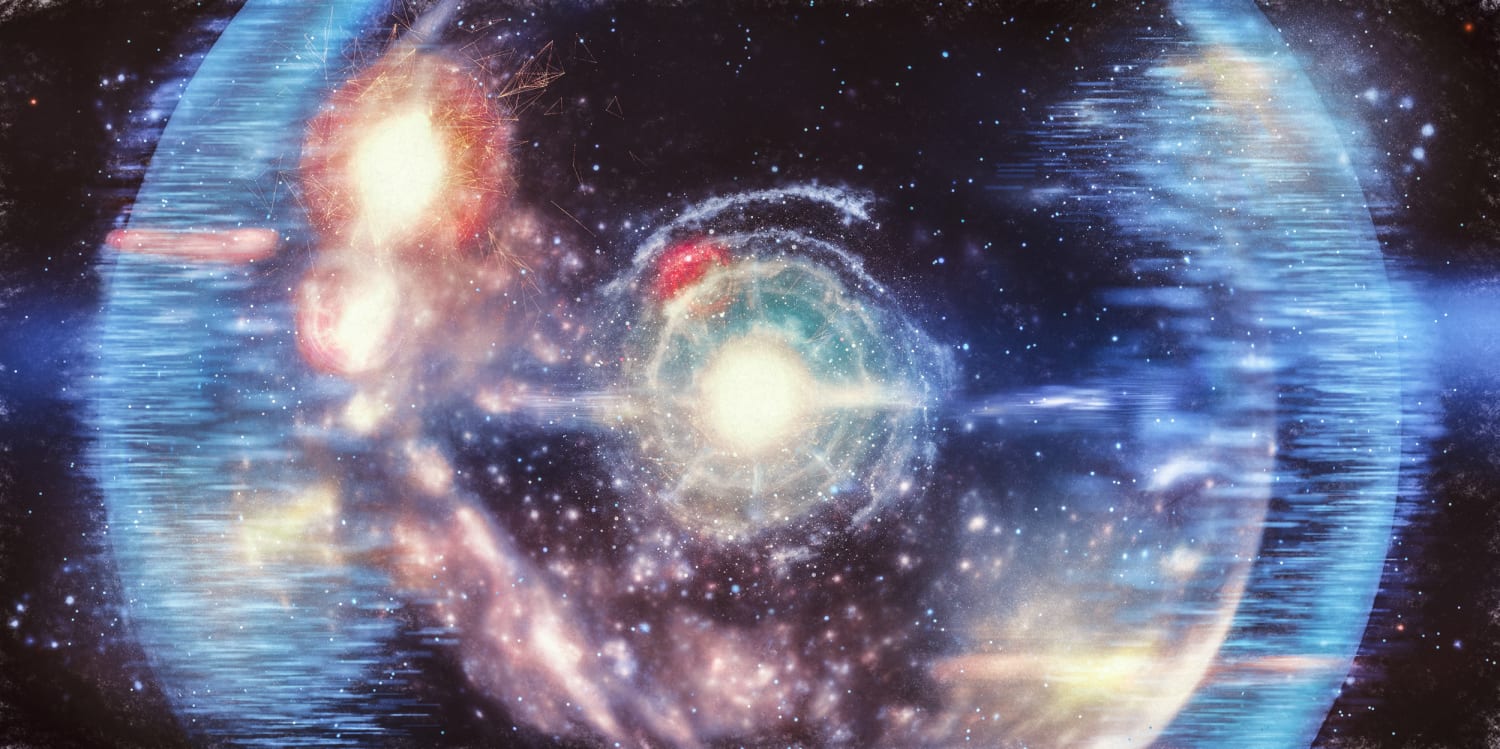So much about space and astronomy is unknown. We really have no idea how we got here, or even how the universe itself formed. Recently, a new branch of physics, the philosophy of physics and space, has become very popular. Basically, experts in the field create theories about unknown mysteries: god, the creation of the universe, the possibility of a multiverse, and even time travel. Of course, these topics are not grounded in tangible evidence, as it would be impossible to test the possibility of time travel, for example. However, these theories and ideas are grounded in basic scientific laws and although they seem irrational at first, are physically plausible. Today, I’ll be speaking on the basics of some of these theories and how they came to be.
The first question that stumps even Nobel laureate physicists and astronomers is the creation of the universe.The Big Bang theory, a concept that states that the entire universe once was compressed to the size of a pinhead. Suddenly, a burst of energy drove the universe into rapid acceleration outward, creating the cosmos as we know it. Although we can’t quite find specific evidence, theorists have concluded that this idea could be physically plausible.

I’ll admit, it was definitely difficult to wrap my head around this concept, but I was truly intrigued by String Theory. String Theory is a concept that actually explains everything in the universe: its creation, its ending, and everything inside of it. This theory basically states that at an extremely small scale, all matter is composed of tiny vibrating strings. The way in which these strings vibrate determines the exact specifications of that particle. However, mathematically, physicists have determined that this theory only holds true in 11 dimensions. But isn’t our world only in 3 dimensions? Actually, many experts believe that 11 dimensions exist, but we as humans, can only experience 3. With that, scientists have concluded that there also exists a multiverse, a greater realm that contains an infinite amount of universes. According to this philosophy, we reside in a universe “bubble” that is one of many. If we were to reside in this multiverse, then String Theory could explain everything in our universe. Of course, this theory thrives in the world of science fiction, but many scientists are working to find quantifiable tests to this concept. Click here to view a lecture from Michio Kaku, a renowned theoretical physicist, about String Theory.


There are countless other theories and concepts that philosophers of physics have created to explain the most absurd phenomena in the universe. Hopefully, as our technology and knowledge of science increases over the next decade or even century, we can reject these hypotheses and explain our very being. An example, historically speaking, of a philosophical theory recently rejected was the existence of black holes. Before the first satellite photograph of a black hole, they were considered science fiction. Nobody could describe their behavior, or even conceptualize their size. Now, with our current knowledge we have learned so much more about their characteristics. These philosophies are important however, as they spark scientific research and create enthusiasm around space and physics.
Image/Video Sources:
https://www.nbcnews.com/mach/science/what-big-bang-theory-ncna881136
https://www.newscientist.com/definition/string-theory/
https://www.newscientist.com/definition/black-holes/
Extremely interesting topic. Thank you for finally defining string theory for me, it actually makes sense to me now. I think that the fact that a group of scientist getting together to form theories on unsolvable questions is extremely cool in the first place, but these theories on the beginning of the universe are some of the most awesome theories created. I always wonder what the odds are that one of these theories are actually the answer to this giant of a question. One thing that I had trouble understanding was the concept of dimensions, more specifically how a scientist calculated the 11th dimension or what that exactly means.